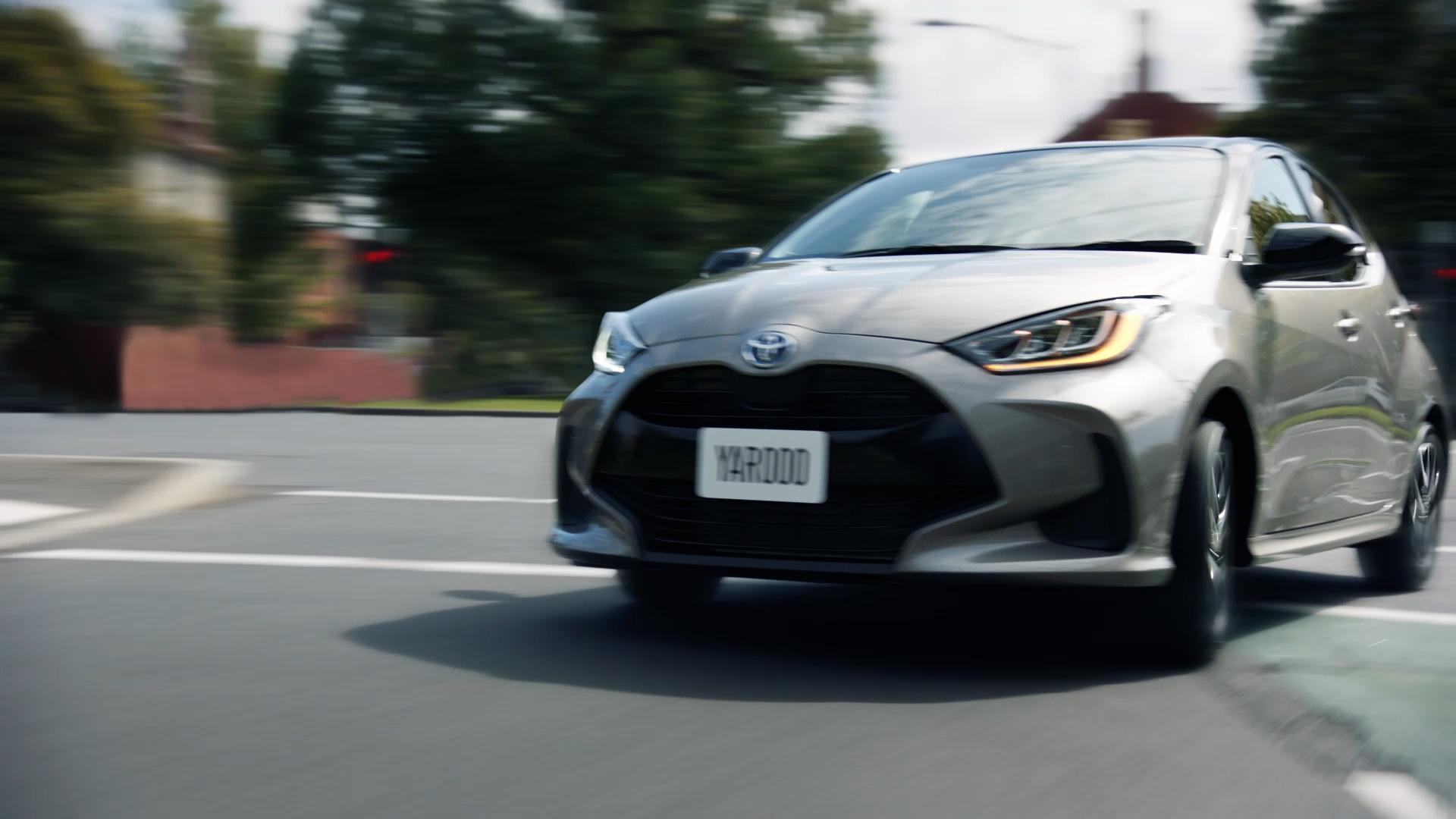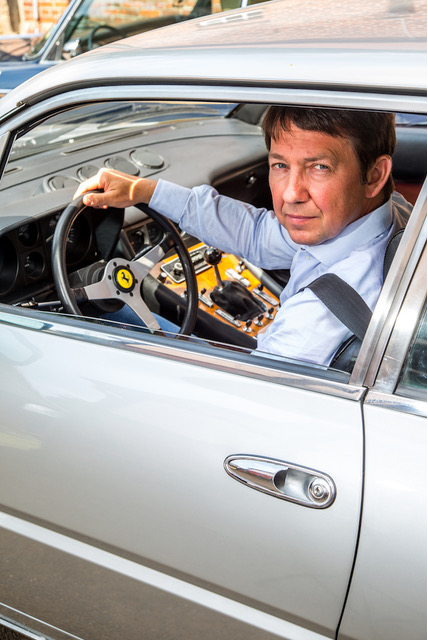
How did the Yaris come to win the Car of the Year 2021 in Europe? To find out what caught the eye of judges, Toyota Times spoke with the president of this year's jury, Frank Janssen.

Toyota Times reporter Kyonosuke Morita has been exploring the story behind the Yaris winning the Car of the Year 2021 in Europe. He learned a great deal about the car’s development goals from its chief engineer, along with manufacturing challenges and solutions from the general manager at the Iwate Plant, which both produces the Yaris in Japan and serves as the parent plant to Toyota’s plant in France. From the company’s European team members, Morita also heard about local plant initiatives, customer responses, and the Yaris’s image in the region.
For his final interview, Morita spoke with Frank Janssen, president of the Car of the Year 2021 award jury. What was it about the Yaris that earned praise from the judges?
Balancing price with environmental performance and emotional appeal
The Car of the Year award honors the best new model released in Europe that year, selected by a jury of 59 motor journalists from 22 countries. Each judge has 25 points that they must allocate among at least five of the seven shortlisted finalists, with a limit of 10 points per car. The breakdown of each judge’s scoring is released, along with the reasons behind their votes.
According to the Car of the Year in Europe official website, the judging criteria are design, comfort, safety, economy, handling, performance, functionality, environmental requirements, driver satisfaction and price. Deciding which areas to focus on is left up to each individual judge, subject to factors such as their personal values and driving conditions in their home country. This approach means that the Car of the Year award determines the year’s best car from a highly diverse range of perspectives.
When asked for his thoughts on why the Yaris was chosen, Janssen answered as follows:
Janssen:
It’s a very reasonable car, very good fuel consumption, very clean. On the other hand, it also has a lot of emotional appeal because of the GR version that was released. This combination was the key factor that led to the strong votes for the Toyota Yaris by the jury. Because all the jury members are also petrolheads, the GR was the perfect additional attribute.
Janssen himself gave the Yaris his highest score of eight points.
Morita:
You scored the Yaris higher than any other car – what was the biggest reason for that?
Janssen:
For me, the hybrid system is really the key point to bring the CO2 emissions down. I think it’s the best solution at the moment, and maybe for the coming years, if you don’t have the infrastructure for electric vehicles.
Morita:
Here in Japan, we get the sense that Europe is making great progress in developing infrastructure for battery electric vehicles (BEVs). Despite that, are hybrids still the best solution for the time being?
Janssen:
From personal experience, if you live downtown and don’t have a private charging point, then you have to go to public charging points. Maybe the charging point is already blocked [by other BEV users]. So you need more charging points, and I don’t know where this is going to stop [and reach the sufficient level].
Infrastructure has increased a lot in the past years, but still it’s not enough for charging all BEVs, including those that are expected to come. I think this could become a problem rather than a solution.
Janssen also questions the appropriateness of committing everything to BEVs, saying, "I’m not sure if this is the right way, or the only way that we should take”. He believes that hybrids, which can make use of existing infrastructure, play a key role in the electrification of mobility, and sees fuel cells that generate electricity from hydrogen as an important technology for the future.
He shared the following views on why European manufacturers are proactively pursuing electrification:
Janssen:
European manufacturers are betting heavily on electric vehicles. Until 2015, everybody was betting heavily on diesel to reduce CO2 because of very good fuel economy. But nobody thought about air quality. Then we had the diesel crisis – all of a sudden, the management of European manufacturers thought about a new way, and that was electrification. They had no alternative.
Morita:
We still have thirty years until 2050. What kind of timeline do you foresee for cars in Europe?
Janssen:
I think that for the next 10 or 15 years, we will have an increase in battery electric vehicles. Diesels are fading out, and we’ll still have petrol engines, but electric vehicles will see quite a strong increase. However, in the future, I hope that all manufacturers will work together on fuel cell technology, and infrastructure, because I see the big advantages that fuel cells bring for everybody by generating electricity from renewable sources.
When asked about Toyota’s image in Europe, Janssen reaffirmed that the brand is strongly associated with hybrids. Having built the first hybrid car more than 20 years ago and continued to make improvements over several generations, Toyota is well known in Europe for its advanced hybrid technology.
“I’m a big fan of the hybrid system,” admits Janssen. “I’ve always liked the idea of regenerating brake energy which was otherwise wasted”.
Janssen:
We should not forget that regeneration of brake energy can also be used in other propulsion systems, including BEVs and FCEVs (fuel cell electric vehicles). The core technology of hybrid systems is also the key for future systems.
A car that fits like a well-tailored suit

So what did the rest of the Car of the Year jury like about the Yaris? Janssen recalls many comments about ‘good handling’ and being ‘fun to drive’. This praise was aimed not only at the GR Yaris, but also the basic and hybrid models.
Janssen:
It’s really a car which fits like a suit, you know. I think it has a very clever package as well – a very nice city car, but you can also go long distances with it. And one of the key points that my colleagues also liked, which we must not forget, was that the Yaris was the cheapest, best value-for-money car in the shortlist.
Morita:
For Europeans, being able to obtain this level of performance in the Yaris at such a price must be a great thing, right?
Janssen:
The number of Yaris buyers has increased, and it was the best-selling car recently in its segment in Europe, so it’s a clear ‘yes,’ of course.
Janssen believes that Europe is “the toughest, most competitive market in the world” on account of the large number of manufacturers, particularly in his home country of Germany. To thrive in this crowded market packed with premium brands, a company must create vehicles that will convince demanding customers. This is no easy task.
Within this hotly contested region of Europe, competition is especially fierce in the area of compact cars.
Morita:
Is the competition in compact cars particularly fierce?
Janssen:
Absolutely, because there’s a price limit for these cars. When you think about premium cars, some buyers can pay any money for a car, but in a compact segment there’s a natural limit within which manufacturers have to outshine their rivals. That makes competition even more fierce.
It was in this tough environment that the Yaris prevailed over a strong field to claim the award. The significance of this event became clear in speaking with Janssen, as did the reasons behind the outpouring of joy from the other interviewees.
Finally, Janssen shared a message for President Akio Toyoda.
Janssen:
Please let him know that I follow his work from a distance. I would of course love to see him again. He is doing an absolutely excellent job, and I think this is an incredible step for his engineering teams, so I would just say keep on going, Akio-san.


